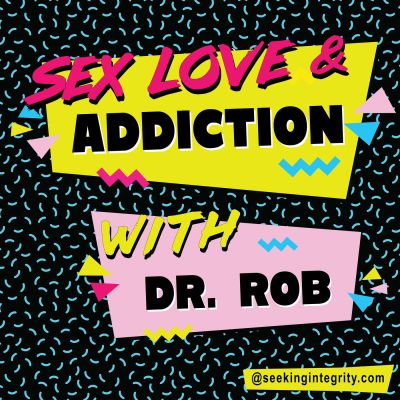On Sex, Love, and Addiction, Dr. Rob Weiss, sex therapist and author of a dozen books on sex and relationship healing, interviews global experts like Dr’s. Sue Johnson, Harville Hendrix, Dr. Stan Tatkin, and Helen Fisher, Dr. Kenneth Adams among others. This podcast features robust discussions focused on healing from chronic infidelity, cheating, porn, and sex addiction, along with the pain of relationship betrayal. Dr. Rob is Chief Clinical Officer for Seeking integrity Treatment Centers. He is a 30-year licensed therapist, a Ph.D. sexologist, and author Sex Addiction 101, Prodependence, and Out of the Doghouse, among other books. This podcast is dedicated to bringing information, advice, and direction from experts around the world to those seeking answers to some of life’s most challenging questions.
https://taminp.podbean.com
Part 2: Dr. Jessica Higgins: How Do You Learn to Forgive?
Dr. Jessica Higgins is a licensed Psychologist with two graduate degrees in psychology and today she continues her discussion around forgiveness in part two of this episode. Dr. Rob and Dr. Jessica talk about why expressing vulnerability is not a weakness but an opening to a better relationship future, how to recover after a conflict and speak your peace, and why emotional unavailability and lack of connection tend to be more painful than the actual act of cheating in itself.
TAKEAWAYS:
[1:30] It is possible to communicate healthy agreements on what is acceptable and unacceptable in your relationship.
[3:30] Sometimes therapists assume or expect that the betrayed spouse will know how to react or talk to their spouse who is struggling with addiction.
[7:10] Instead of complaining to your spouse right away, there are benefits to journaling or writing down your thoughts about what their actions meant to you and how you perceived it.
[9:10] If we share vulnerability, your partner is more likely going to respond positively to that than if you were to act aggressively or accusatory.
[11:30] After reading hundreds of letters from betrayed spouses, it was never the cheating that hurt them the most. It was the emotional unavailability.
[14:30] You can show up in little ways and it will begin you on the path of having your betrayed partner feel valued again.
[18:20] The most important part to relationships is how you repair after a conflict or mistake.
[22:20] What are some indicators that a relationship is completely done?
[25:30] Interested in working with Dr. Jessica? Link to her website is in the show notes.
RESOURCES:
Sex and Relationship Healing
@RobWeissMSW
Sex Addiction 101
Seeking Integrity
Cruise Control: Understanding Sex Addiction in Gay Men
Prodependence: Moving Beyond Codependency
Out of the Doghouse by Robert Weiss
Drjessicahiggins.com
Shifting Criticism guide
Empowered Relationship Podcast link
Dr. Jessica Higgins Website
QUOTES:
-
“There’s an attempt to control your partner [when feeling hurt], this is understandable to want to feel that protection, to help your partnership, but it’s counterintuitive. It’s going to create a false sense of trust.”
-
“Almost every time, betrayed partners write about how [their partner] felt unavailable. Didn’t think about how much I really needed you. You didn’t open up to me and I felt alone.”
-
“The harm people cause each other is not the important part of this whole picture. We make mistakes. The important part is all in the repair. It’s not that you make a mistake, it’s you going back and saying you didn’t do that right.”
